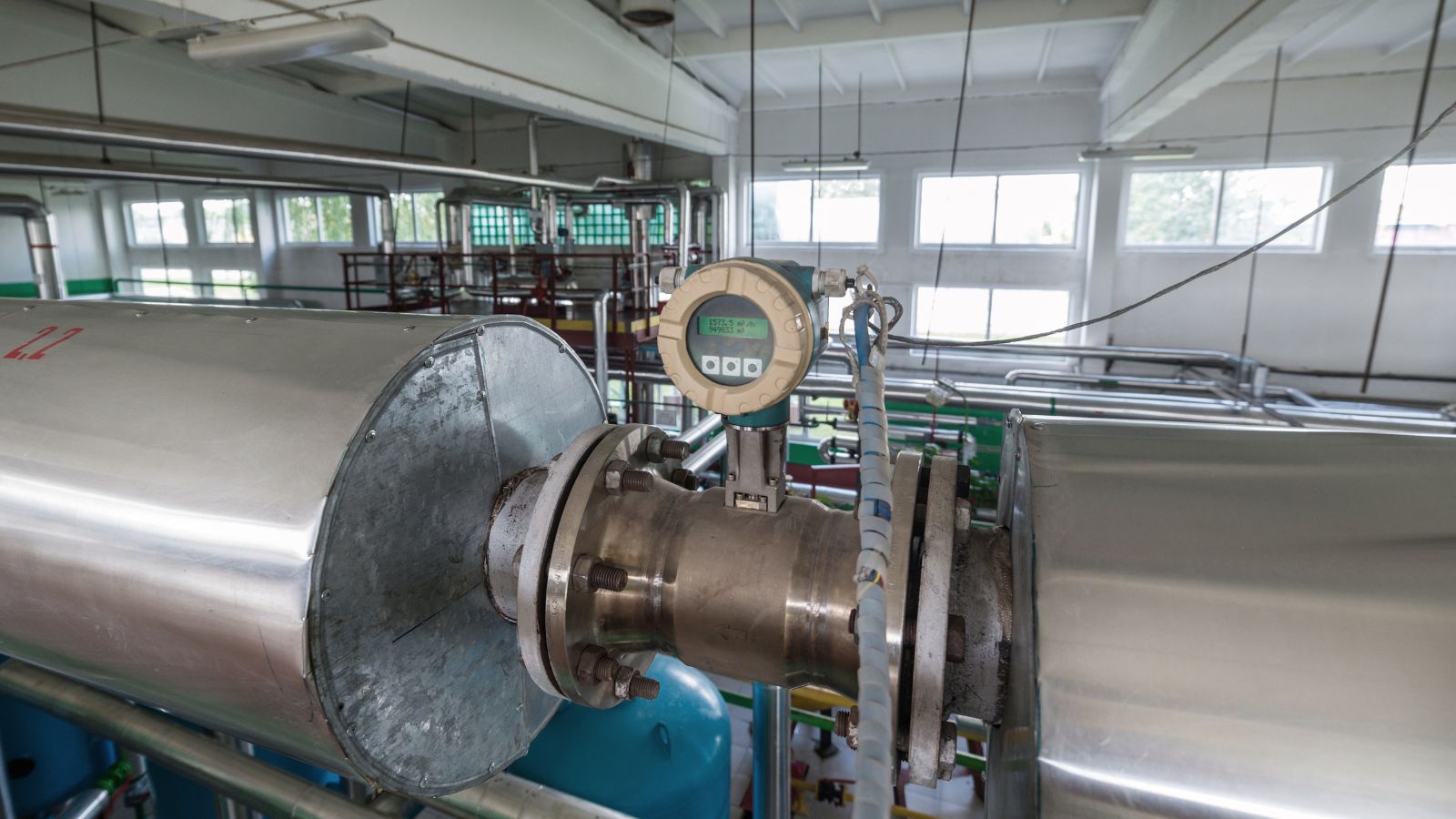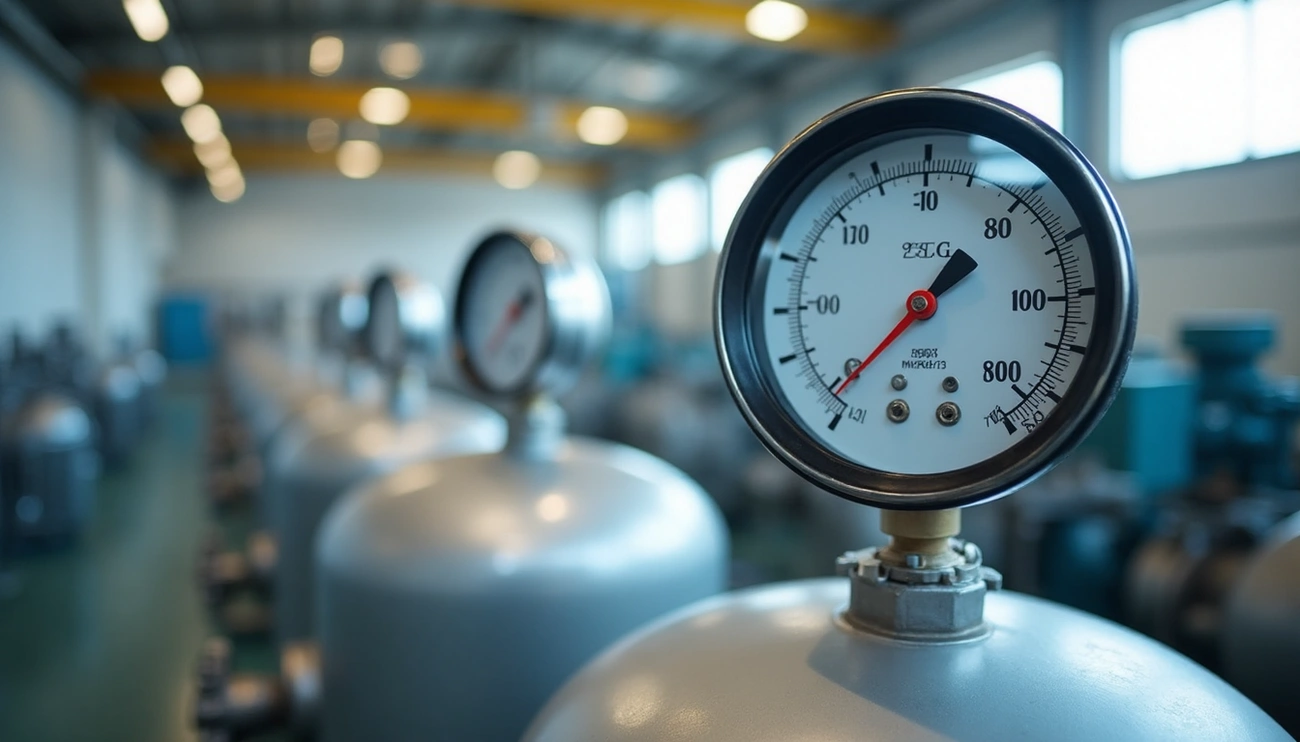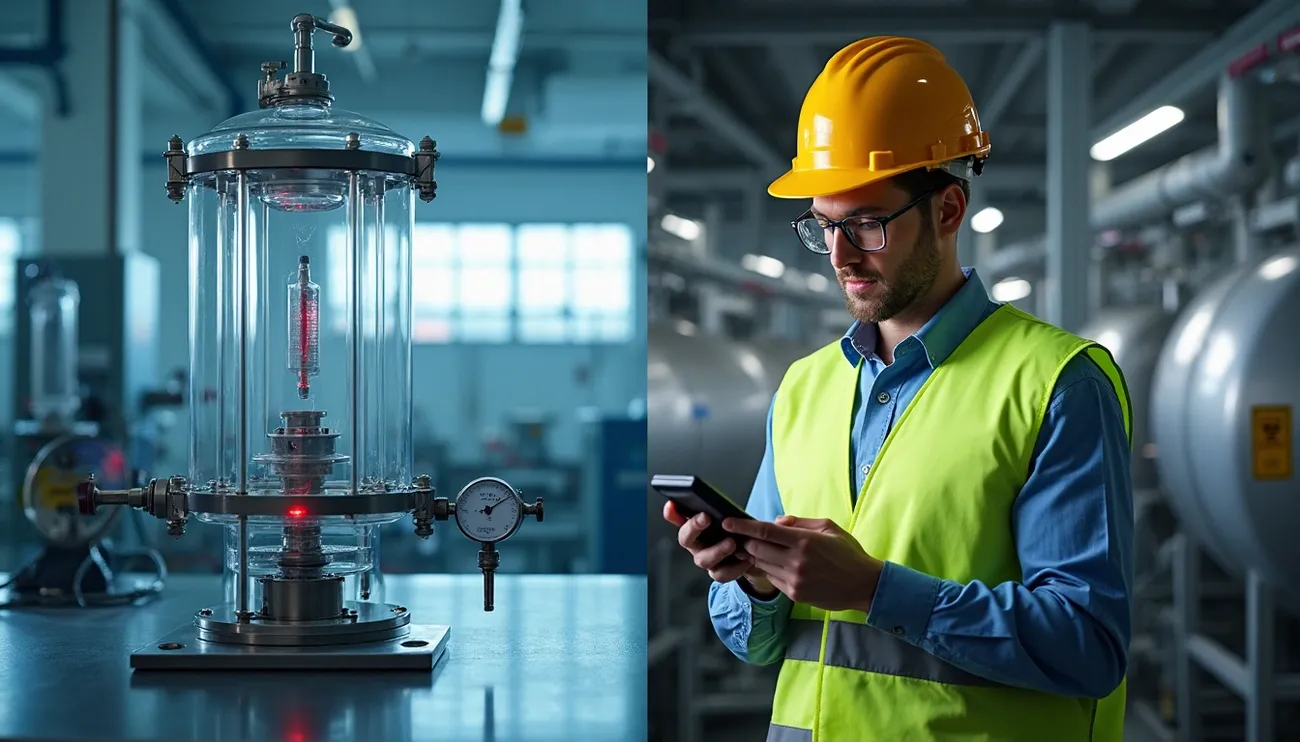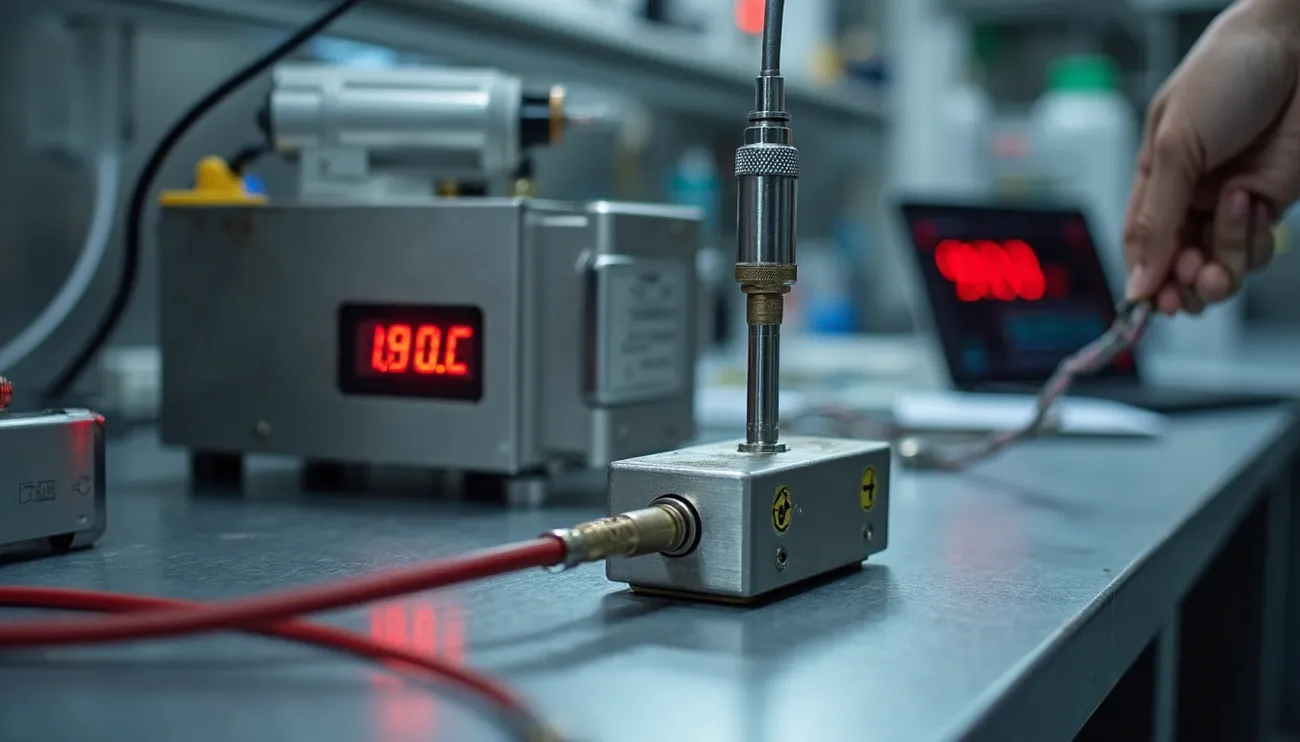The advent of technology has revolutionized countless industries, and agriculture is no exception. The introduction of the smart agriculture system has been a game-changer, transforming the way farming and agriculture operations are conducted. The smart agriculture system refers to the application of modern technologies such as the Internet of Things (IoT), artificial intelligence (AI), and data analytics to enhance the efficiency and productivity of agriculture.
The system incorporates various devices and software solutions that enable farmers to monitor the health of crops, predict weather patterns, manage resources efficiently, and make informed decisions to boost yields. It is a comprehensive approach that combines various aspects of farming, including crop monitoring, livestock management, and resource management, all under one umbrella. The smart agriculture system is a significant stride towards sustainable agriculture, ensuring food security for a rapidly growing global population.
Despite being a relatively new concept, the smart agriculture system has gained substantial traction over the past few years. The growing need for efficient agricultural practices coupled with the increasing adoption of advanced technologies in the farming sector has propelled its demand. From small-scale farmers to large agricultural enterprises, the smart agriculture system is becoming an integral part of modern farming.
What is the difference between smart farming and smart agriculture?
While the terms smart farming and smart agriculture are often used interchangeably, they essentially refer to different aspects of technology-driven agriculture. Smart farming primarily focuses on the use of technology to improve the quality and quantity of agricultural products. It involves the application of advanced technologies such as precision farming, GPS, GIS, remote sensing, and robotics in farming operations.
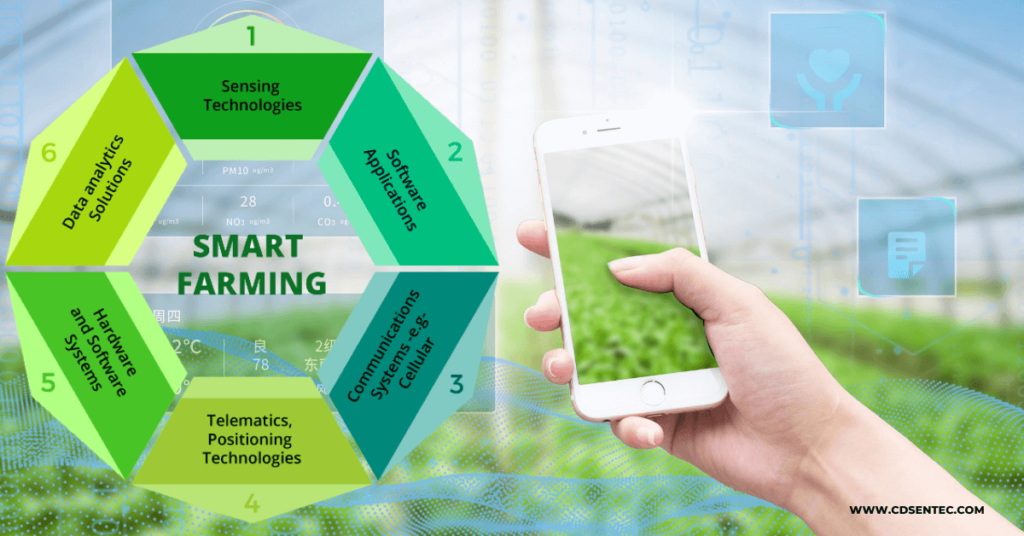
On the other hand, smart agriculture encompasses a broader perspective, extending beyond the farm level. It involves the integration of smart farming techniques with other aspects like supply chain management, market access, and policy support, thus providing a holistic approach to sustainable agriculture. While smart farming is a component of smart agriculture, the latter is a more comprehensive concept that aims to address the various challenges in the agriculture sector through technology.
The Concept of Precision Agriculture
Precision agriculture is one of the key components of the smart agriculture system. It is a farming management concept that uses information technology and a wide array of items like GPS guidance, control systems, sensors, robotics, drones, autonomous vehicles, variable rate technology, GPS-based soil sampling, automated hardware, telematics, and software. The goal of precision agriculture is to ensure that crops and soil receive exactly what they need for optimum health and productivity.
Precision agriculture allows farmers to monitor and manage their fields with unprecedented accuracy. It facilitates the precise application of inputs such as water, fertilizers, and pesticides, thereby reducing wastage and minimizing the environmental impact. By providing real-time insights into the field conditions, precision agriculture enables farmers to make data-driven decisions, improving crop yields and quality.
Understanding the Agricultural Monitoring System
A crucial component of the smart agriculture system is the agricultural monitoring system. It is a technologically advanced system that monitors various parameters such as soil composition, temperature, humidity, light intensity, and pH levels to provide valuable insights. This data helps farmers make informed decisions regarding irrigation, fertilization, pest control, and crop rotation.
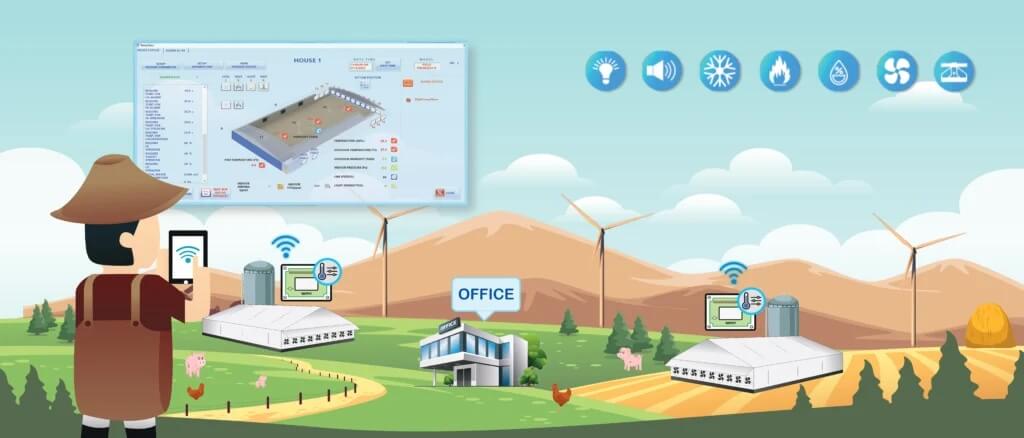
The agricultural monitoring system utilizes various technologies such as IOT sensors, drones, and satellite imagery to capture real-time data from the fields. The collected data is then processed and analyzed to generate actionable insights. By providing timely and accurate information about the field conditions, the agricultural monitoring system allows farmers to manage their crops more efficiently and effectively.
The Significance of a Smart Farm Monitoring System
The smart farm monitoring system plays a pivotal role in the smart agriculture system. It allows farmers to keep a close eye on their farms, monitor the health of their crops, and track the performance of their farming equipment. With the help of a smart farm monitoring system, farmers can detect any anomalies in their crops or equipment at an early stage, allowing them to take preventive measures and avoid potential losses.
Moreover, the smart farm monitoring system enables farmers to optimize their resource usage. By providing real-time information about the soil moisture levels, weather conditions, and crop health, the system allows farmers to precisely control the application of water, fertilizers, and pesticides, thereby reducing wastage and minimizing the environmental impact.
How the Agricultural Monitoring System project improves farming
The agricultural monitoring system project is a concerted effort to harness the power of technology to enhance farming practices. It involves the development and deployment of advanced monitoring systems that provide real-time insights into various aspects of farming. The agricultural monitoring system project is aimed at improving the efficiency and productivity of farming operations, while minimizing the environmental impact.
By providing accurate and timely information, the agricultural monitoring system project helps farmers make informed decisions regarding irrigation, fertilization, pest control, and crop rotation. It allows farmers to manage their resources more efficiently, reduce wastage, and improve the quality and quantity of their produce. Moreover, the project contributes to sustainable agriculture by promoting the use of environmentally friendly farming practices.
The Benefits of Precision Farming
Precision farming offers a plethora of benefits that contribute to the efficiency and productivity of farming operations. By providing detailed insights into the field conditions, precision farming allows farmers to manage their crops more effectively. It enables the precise application of inputs such as water, fertilizers, and pesticides, thereby reducing wastage and minimizing the environmental impact.
Moreover, precision farming facilitates the early detection of crop diseases and pests, enabling farmers to take preventive measures and avoid potential losses. It also allows farmers to optimize their farming practices based on the specific needs of their crops, thereby improving the quality and quantity of their produce. Lastly, precision farming contributes to sustainable agriculture by promoting the use of environmentally friendly farming practices.
Overview of Precision Ag and its Role in Modern Agriculture
Precision Ag, or precision agriculture, is a modern farming practice that uses advanced technologies such as GPS, GIS, remote sensing, and data analytics to manage crops and soil. Precision Ag allows farmers to monitor their fields with unprecedented accuracy, facilitating the precise application of inputs and improving crop yields and quality.
Precision Ag plays a pivotal role in modern agriculture, contributing to the efficiency and sustainability of farming operations. By providing real-time insights into the field conditions, Precision Ag enables farmers to make data-driven decisions, optimizing their resource usage and minimizing the environmental impact. Moreover, Precision Ag promotes sustainable agriculture by encouraging the use of environmentally friendly farming practices.
The Impact of Precision Agriculture Technology on Farming
Precision agriculture technology has had a profound impact on farming, revolutionizing the way agricultural operations are conducted. By providing real-time insights into the field conditions, precision agriculture technology enables farmers to manage their crops more effectively. It facilitates the precise application of inputs, reducing wastage and minimizing the environmental impact.
Moreover, precision agriculture technology allows farmers to detect crop diseases and pests at an early stage, enabling them to take preventive measures and avoid potential losses. It also enables farmers to optimize their farming practices based on the specific needs of their crops, improving the quality and quantity of their produce. All in all, precision agriculture technology has transformed farming into a more efficient, productive, and sustainable practice.
The Future of Smart Agriculture System in Enhancing Agricultural Monitoring
The smart agriculture system holds immense potential for enhancing agricultural monitoring. With advancements in technology, the system is becoming increasingly sophisticated, offering more precise and accurate insights into various aspects of farming. The future of the smart agriculture system lies in the integration of advanced technologies such as AI, machine learning, blockchain, and big data analytics.
These technologies will enable the smart agriculture system to analyze vast amounts of data, predict trends, and make accurate forecasts, thereby improving the efficiency and productivity of farming operations. Moreover, they will facilitate the development of smart contracts and traceability systems, enhancing transparency and accountability in the agriculture sector. With these advancements, the smart agriculture system is set to revolutionize agricultural monitoring, paving the way for sustainable and resilient agriculture.
Conclusion
The smart agriculture system is a game-changer in the agriculture sector, offering a comprehensive solution for efficient and sustainable farming. By integrating advanced technologies such as Precision Ag and the agricultural monitoring system, it enables farmers to manage their crops more effectively, optimize their resource usage, and improve the quality and quantity of their produce.
The future of the smart agriculture system looks promising, with advancements in technology set to enhance its capabilities further. As we move towards a future of sustainable and resilient agriculture, the smart agriculture system will undoubtedly play a pivotal role in shaping the future of farming. With its immense potential, the smart agriculture system is set to revolutionize agricultural monitoring, laying the foundation for a new era in farming.

